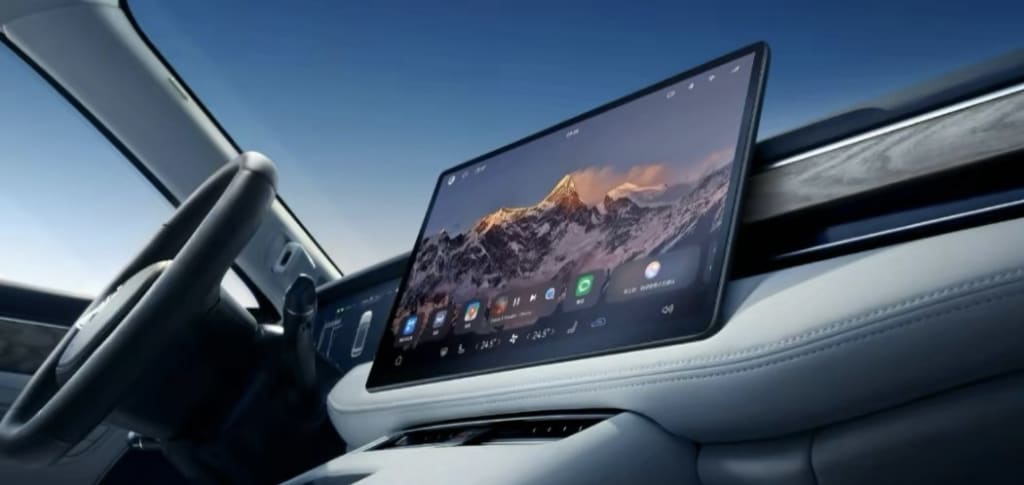Why did Huawei suddenly stop building cars?
Huawei's car manufacturing has been rumored for a long time. Why did it suddenly stop?

First, why is Huawei in the car business?
Looking back, one thing is the decline of China-Us relations in 18 years. The other thing is that it was just at the cusp of the rise of new energy.
The rise of new energy has two characteristics, one is that the threshold of three electricity Q is relatively low. Compared with the engine, transmission, three electricity is simply too simple! Any enterprise has the hope of self-research, even if self-research, money can also be relatively easy to buy alternative, and relatively, engine, transmission for so many years, there are still many domestic manufacturers can not fix themselves, buy others
Not only the production capacity is jammed, but also many matching and control problems will be derived in the process of vehicle tuning. Another characteristic is that, in order to quickly play differentiation with traditional products, there must be some strong, obvious characteristics, to win the user, generally speaking, is to rely on the low speed of the motor large torque Q to get the "acceleration fast" this power a characteristics, as well as "intelligent". "Intelligence" is not actually a feature of new energy, but in the process of "differentiation" shaping products, it is forced to bind with new energy.
At that time, Huawei was under siege. It was an excellent opportunity to establish itself in a new field, new energy vehicle Q. The low threshold made it easy to get tickets. Second, what does it mean to build a car? Heavy capital. The first investment to build a car will be at least 3 billion yuan. R&d resources, manufacturing qualifications, highly automated factories, distribution, supply chain alignment, etc. And since then, the annual R&D investment generally ranges from 300 to 1 billion yuan (depending on how many models are invested). In order to ensure the production end, there is still a variety of places to spend money. Burning $10 billion in three years is routine - remember what Lei Jun said when Xiaomi was building cars? Lots and lots of money have been prepared.
That's a lot of money compared to the size of the Internet.
Evergrande was very ambitious in the early stage of car building, and its investment of several billion yuan made me doubt about life for a time. I once thought that the capital demand of the automobile industry was a blow to the Internet, while the real estate industry was a blow to the automobile industry. It was not until Evergrande was played for nothing that my previous opinion was confirmed again - it needed a huge amount of money. And for a lot of money, it's easy to roll over.
At a time when chips are under pressure and the handset business is in sharp decline, it is not worth taking such a risk, and it is not worth taking such a risk if Huawei makes a mistake in direction and ends up suffering because of the car.
So it's normal to have some reservations in this business at first. Third, what does Huawei want?
China's Bosch. This was the most frequently said comment of the time.
By virtue of its fast and intelligent features, Huawei has brought a revolution to the automobile industry. However, Huawei has not accumulated enough experience in the automobile industry in the past, so it must give full play to its own characteristics if it wants to achieve rapid results.
Then is "intelligent", this word means intelligent network connection degree, means intelligent cockpit, also means unmanned Q, and behind these, is based on new energy business, so it also means three power business.
By selling the packaged technical solutions to various manufacturers, Huawei is able to obtain huge profits with lightweight assets -- monopolistic Tire 1, which should be the best position for Huawei.
The smart business can cooperate with any manufacturer, and the Sanpower business can be sold to a company with poor technical ability. The combination of these two businesses also preserves the possibility of making cars in the future.
It was perfect.
But at this point, it's easy to think: if I sell a car, and I buy your technical solution, and you're building a car, will you sell me your technology without reservation while we're competing?
These are things you have to do -- you can't build them, there's no alternative. But in the new era, there are "smart" and "three electricity"
Is the alternative, even have their own plan, everyone choose China
Because Huawei is good, not because Huawei is irreplaceable, once
Huawei has shown possible "Wolf ambition" and it is easy for everyone to break the partnership.
Therefore, Huawei does not build a car, is one of the premises of becoming a monopoly Tire1.
Also, new forces sprang up between 2014 and 2017, but in fact, they closed down around 2018. The early entrants will launch the second or third generation models around 2023, which will be in a better state regardless of the maturity of technology, the grasp of the market and the balance of the supply chain. Later than
For those who enter the market in 2018, it is very, very difficult to face the accumulation of traditional manufacturers, the first-mover advantage of being a new force but entering the market earlier, and poor market recognition.
Considering the importance of assets, the "threat theory", and the "timing" problem, it is an inevitable strategic choice for Huawei not to build cars.
But why are the boundaries so different?
An investment attempt.
It's not Huawei's own car. Not all the time, but in depth with Huawei to decide.
Ask the success, is the credit of Huawei, ask the failure, Huawei can be dumped twelve thousand net.
Regardless of the outcome, it will give Huawei rich experience in the process of building cars in the future.
Huawei's original plate, still difficult.
In the past few years, autonomous driving Q has not been recognized by the market. Everyone acknowledges that "driver assistance Q is good, but also believes that" driverless driving "is a false proposition. Spend an extra 20,000 bucks on a set
Less practical systems, the market is not buying. So the autonomous driving sector is not getting the revenue it expected.
As for the intelligent network connection and intelligent cabin Q, indeed with many Oems
Carried out cooperation, but Huawei side in the reputation of various manufacturers, are not too good. They certainly have good qualities, such as intelligence, eagerness to learn, motivation and initiative. But there are many disadvantages, such as expensive, aggressive, not understanding the traditional business, contempt for traditional experience. These characteristics have led to unhappy multi-party cooperation, and since the beginning of this year, many manufacturers have been rethinking their relationship with Huawei. So, it wasn't particularly successful.
At this time, we should continue to hold the banner of "building cars", which may affect our future planning.
So it's smart to go back to the main theme from the beginning, "Huawei won't be building cars anytime soon."
They don't build cars now. As a good Tire 1, continue to accumulate their strength and continue to observe this industry.
But that doesn't mean we won't build cars in the future, we just have to wait for a better opportunity





Comments
There are no comments for this story
Be the first to respond and start the conversation.